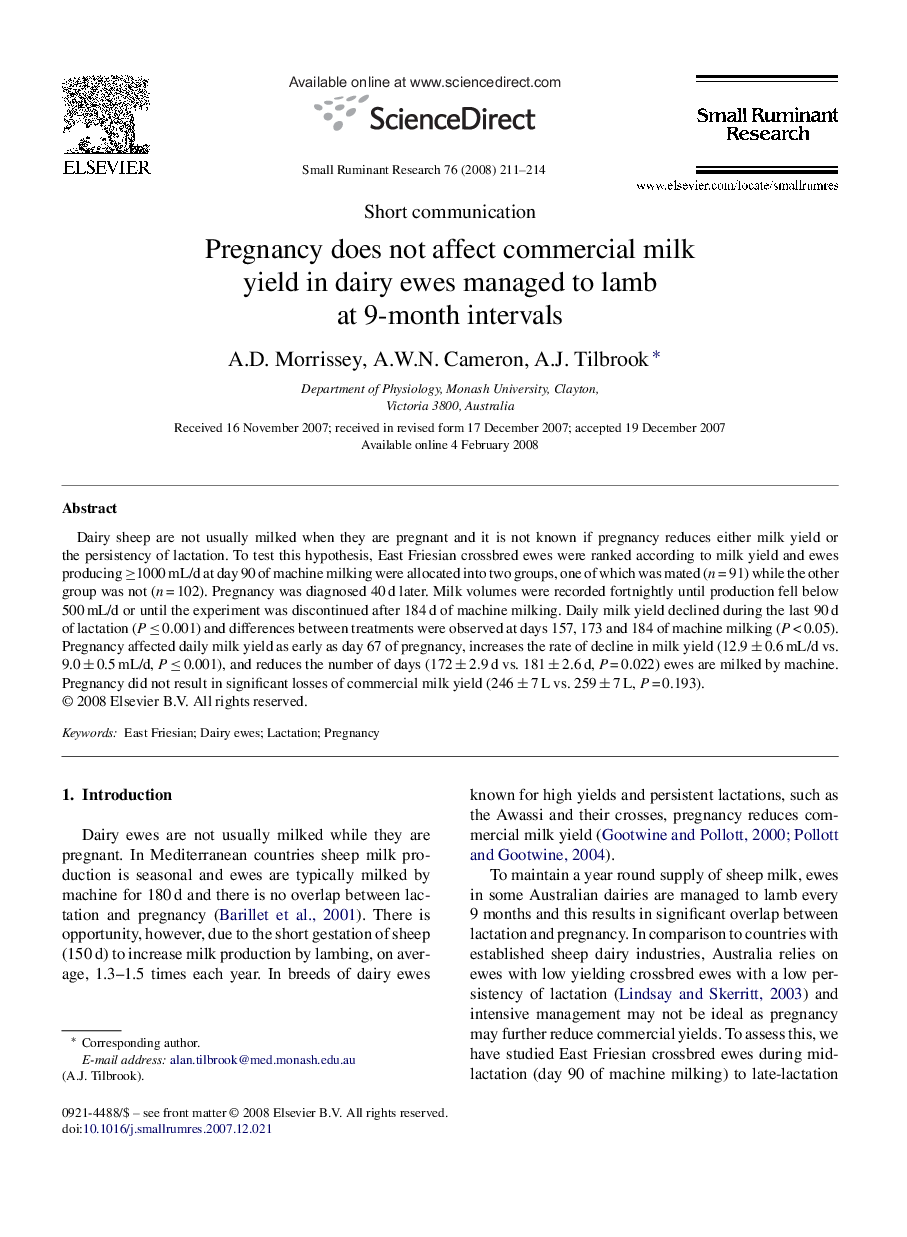| Article ID | Journal | Published Year | Pages | File Type |
|---|---|---|---|---|
| 2457995 | Small Ruminant Research | 2008 | 4 Pages |
Dairy sheep are not usually milked when they are pregnant and it is not known if pregnancy reduces either milk yield or the persistency of lactation. To test this hypothesis, East Friesian crossbred ewes were ranked according to milk yield and ewes producing ≥1000 mL/d at day 90 of machine milking were allocated into two groups, one of which was mated (n = 91) while the other group was not (n = 102). Pregnancy was diagnosed 40 d later. Milk volumes were recorded fortnightly until production fell below 500 mL/d or until the experiment was discontinued after 184 d of machine milking. Daily milk yield declined during the last 90 d of lactation (P ≤ 0.001) and differences between treatments were observed at days 157, 173 and 184 of machine milking (P < 0.05). Pregnancy affected daily milk yield as early as day 67 of pregnancy, increases the rate of decline in milk yield (12.9 ± 0.6 mL/d vs. 9.0 ± 0.5 mL/d, P ≤ 0.001), and reduces the number of days (172 ± 2.9 d vs. 181 ± 2.6 d, P = 0.022) ewes are milked by machine. Pregnancy did not result in significant losses of commercial milk yield (246 ± 7 L vs. 259 ± 7 L, P = 0.193).
